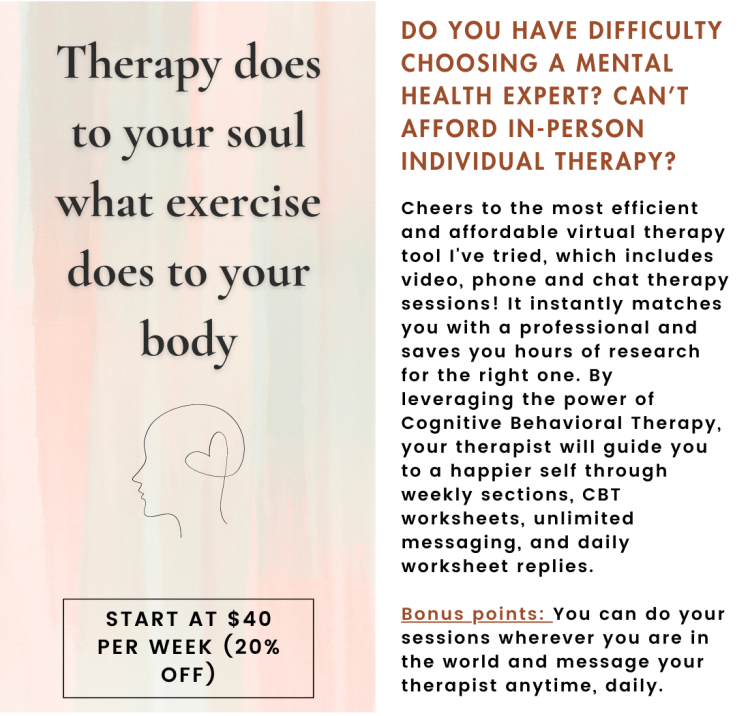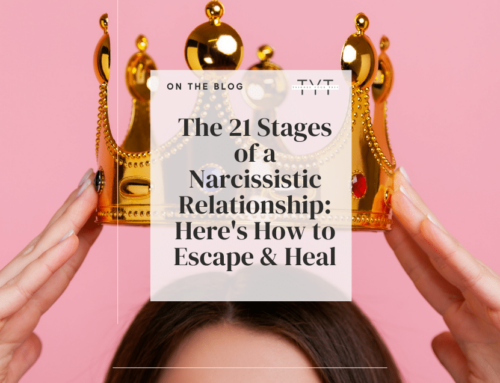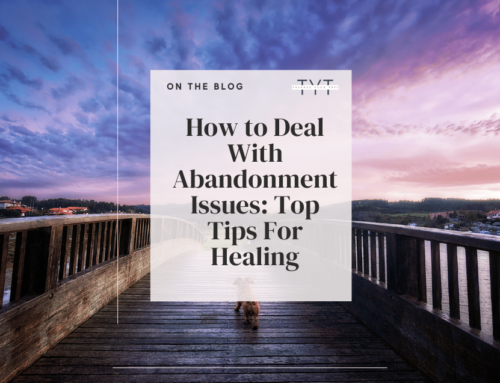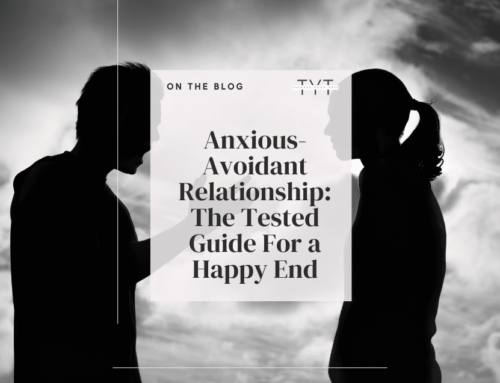It’s natural for us to want independence and control over our own lives. However, if we take it too far, it can become “hyper-independence” – a state of mind that harms mental and physical health by causing trouble in your relationships.
This phenomenon could signify underlying trauma or difficult life circumstances that cause an individual to isolate themselves from others to cope with emotional pain.
If you’re concerned about your level of hyper-independence causing health issues on any level, remember that understanding the underlying cause behind it might open up avenues toward healing yourself holistically. It can also help you understand why hyper-independent people respond this way and how they can work towards creating healthier relationships with themselves and others.
This article will explore what hyper-independence means, how it relates to trauma response and five ways to begin healing from your past experiences.
What’s Hyper-Independence?
Hyper-independence is an excessive need for autonomy and control over one’s life, often resulting from unresolved trauma caused by a challenging experience or an insecure attachment style. It can manifest in extreme self-sufficiency, a lack of connection with others, difficulty trusting people, and disconnection from the world.
At its core, hyper-independence is a defense and coping mechanism that can be developed in response to painful or traumatic experiences, such as childhood abuse or abandonment from primary caregivers, which is the struggle people with an avoidant attachment style deal with. In some cases, hyper-independence may also stem from a feeling of not belonging or being accepted by others.
Trauma is often processed and expressed through hyper-independence to protect oneself from further hurt. Thus, hyper-independence is a trauma response for hyper-independent people. These trauma responses from hyper-independent people are discussed below as “signs” of hyper-independence.
Related: Emotional Permanence Explained & 5 Top Tips on How to Cope
What Are Signs Of Hyper Independence?
Here are some easy ways to recognize if this emotional response manifests in yourself or your loved ones.
-
Reluctance to rely on others for help
Hyper independence includes being very independent and not trusting other people; thus, it can manifest in ways where you feel like others will not help you or if you ask them, they will not get the job done.
Not only does this impact your professional life, but it can also hurt your meaningful relationships as it shows your significant other that you don’t trust them enough.
Eventually, this will lead to you doing everything yourself, harming the trust built through your mental health and long-term relationships. You may think you are self-sufficient, but blocking others from your life and never relying on them can cause extreme physical strain, which will eventually come to the surface.
-
inability to form genuine connections
Hyper-independence can also directly affect one’s ability to form genuine connections with others. A hyper-independent person may struggle to develop close relationships, hesitate to open up, show emotional vulnerability, or, as mentioned above, ask for help. As hyper-independence stems from a traumatic event/past trauma/difficult circumstances, it can make it hard for hyper-independent people to form healthy relationships that can be relied upon for emotional support.
This also involves overly independent people actively avoiding social events and other people’s input on things.
If you find yourself alone emotionally and have no one to rely upon, think about your reactions to situations that asked you to be emotionally vulnerable, but your instincts refused to follow.
-
Strong need for personal autonomy
Hyper-independence can cause a strong need for personal autonomy, often driven by the desire to protect oneself from potential hurt or pain. Relying on others means giving a part of your will away. Your body senses danger because of the hyper-independence coping mechanisms, making you want to be alone and not reliant on anyone.
A hyper-independent person may believe they must do everything to maintain safety and control.
-
Over-Achieving
Overly Independent people can also manifest in the need to over-achieve. Hyper-independent people may go to great lengths to prove that they are self-reliant and don’t need help from others to meet their goals or complete tasks.
It may also force people to feel intense pressure to be successful, which leads them to take on more tasks and responsibilities than they can handle.
The need to achieve more is not dire, but constantly pressuring yourself to do more might be masking hyper-independence trauma.
-
Burnt Out and Stressed
Hyper-independence trauma also causes further harm. All the responses involve some conclusion of feeling more worn out and stressed from constantly pushing themselves to do more and avoid more people.
This can lead to various physical and mental health problems, such as anxiety, depression, insomnia, fatigue, headaches, digestive issues, and immune system problems. In addition, hyper-independent people may also be more prone to addictive behaviors, such as substance abuse.
-
Reluctance to Provide Emotional Support
Hyper-independence trauma can be complicated to cope with as hyper-independent people may struggle to provide emotional support to others, even with close relationships. This happens because hyper-independence is an extreme form of self-protection that makes it difficult for hyper-independent people to empathize and trust others with their deepest thoughts and feelings.
Thus, hyper-independence affects both the provision and the receiving of emotional support in healthy relationships.
Related: The 7 Stages of Trauma Bonding: Here’s Why You Can’t Leave
What Causes Hyper-Independence?
All of the signs discussed above have some form of origination. These trauma symptoms come from a traumatic situation, and before we can understand how to cope with such emotional reactions, we need to pinpoint where they come from.
-
Childhood trauma
Hyper-independence can be a direct result of childhood trauma. Traumatic events experienced in childhood, such as physical or emotional abuse or neglect, push children towards self-reliance mode as a coping mechanism, essentially an avoidant attachment style.
These hyper-independent children may subconsciously feel they cannot trust anyone and must rely on themselves to survive. This traumatic experience may be the origin of some mental health conditions in the person, including being fiercely independent to the point of not recognizing its harmful effects.
-
Physical or emotional abuse
Physical or emotional abuse, like narcissistic or reactive abuse, is a common cause of hyper-independence trauma. People who experience physical or emotional abuse are often traumatized and develop hyper-independence as a coping mechanism to protect themselves from potential hurt in the future. This type of trauma can be especially damaging as it often leads people to dissociate from their family members and close friends as they sense them as potential threats.
-
Neglect or abandonment
Neglect or abandonment can also lead to hyper-independence trauma. People who experience neglect or abandonment often learn to care for themselves, activate their survival mode, and rely on nobody, as they do not feel that anyone can help them.
-
Difficult life circumstances
Difficult life circumstances can also lead to hyper-independence trauma. People who experience poverty, homelessness, or other difficult living conditions may develop hyper-independence to cope with their situation.
This situation is often out of necessity and is a survival mechanism.
-
Perceived rejection from others
Hyper-independence trauma can also be caused by perceived rejection from others.
People may develop hyper-independence if they feel neglected, overlooked, or judged by those around them. This type of trauma can often lead to isolation and loneliness as hyper-independent people may distance themselves from their relationships to protect themselves from feeling rejected again.
-
Unresolved Grief
Unresolved grief can also lead to too much responsibility and independence When a person experiences the death of a loved one, they may feel overwhelmed with sadness and have difficulty dealing with their emotions. This can often lead to ultra-independence as the person may use self-reliance to cope with intense emotions.
Related: Narcissist Gaslighting: 19 Ways to Spot This Dangerous Abuse
Is Being Hyper-Independent A Trauma Response?
Yes, hyper-independence is usually a trauma response.
However, it might be a personality trait that might be exaggerated in certain situations. Therefore, if you want to understand what you are going through properly, you should get diagnosed by a licensed therapist. This will help you understand your mental standing and how you deal with it or experience trauma in today’s world.
How Do You Break Hyper-Independence?
There are five ways to cope with hyper-independence:
-
Understanding what hyper-independence means
As explored above, understanding how this emotional response was created, what it means in your personal life, and how you experienced trauma is essential to cope.
If you understand where it comes from, you can address the people responsible or the situations that caused it healthily by exploring the four methods below.
-
Help from a licensed therapist
A therapist can help by providing a safe and non-judgmental environment to process their traumatic experiences. They can also offer strategies and techniques to address the underlying causes, such as exploring unprocessed emotions like anger or fear, examining self-defeating thought patterns, and developing healthier coping mechanisms.
-
Finding healthy outlets
Finding healthy activities that let out emotions like anger or fear in safe ways can also help. You can manage interpersonal relationships better if you open up through healthy outlets, manage boundaries, and give and healthily receive emotional support.
-
Practicing self-care activities
Practicing self-care is a crucial part of breaking this emotional reaction. Self-care involves activities that promote relaxation and emotional well-being, such as meditation, yoga, reading, journaling, or nature walks. The goal is to take care of yourself mentally, physically, and emotionally in healthy ways.
-
Journaling your thoughts and feelings
Journaling is also another way to cope with emotional fatigue, where you can document what you felt, how you felt it, and why the reaction was in such a way.
Do you have difficulty choosing a mental health professional? Can’t afford in-person individual therapy?
This online therapy toolbox is more efficient and affordable than any other virtual therapy I’ve tried, including BetterHelp and Talkspace. It instantly matches you with a therapist. By leveraging the power of CBT (Cognitive Behavioral Therapy) -the most common psychotherapeutic approach for treating mental health problems- your therapist will guide you to a happier you through the sections, worksheets, messages, and live sessions. You can do your sessions wherever you are in the world and have daily contact with your therapist.
Use my link to start only at 40$ per week for your first month.
Related: Therapy for Narcissistic Abuse: The 5 Best Affordable Alternatives
Final thoughts
If you are struggling with hyper-independence, seeking the help of a licensed therapist and engaging in self-care activities such as journaling or finding healthy outlets to express your emotions could help you break the pattern.





